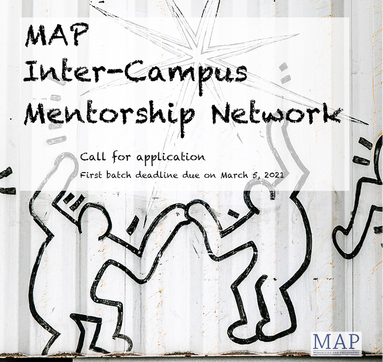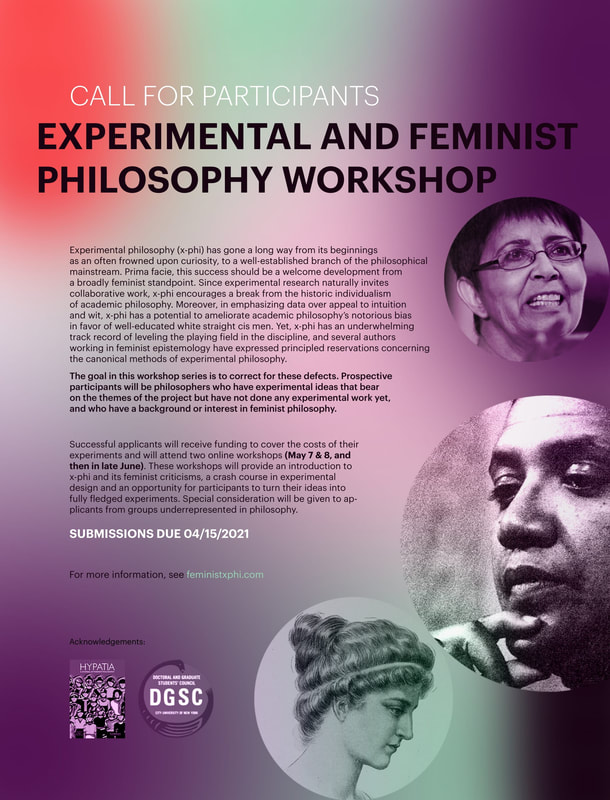|
First batch application deadline: March 5, 2021 Application form: https://forms.gle/VuS6ihdHowX7Tq3i8 Program description Marginalized graduate students often face many obstacles navigating graduate school, and often left with inadequate support from within their own department. The faculty of their home department might not be familiar with the needs of minority graduate students to know how to best support them. In some cases, the graduate student body of their home department might not be sufficiently diverse, such that marginalized graduate students might have the need to find an external community in addition to their cohort in the department. The purpose of this peer mentorship network is to build a support network by connecting marginalized graduate students in philosophy from different departments together. Getting perspectives from someone in similar situations but external to the department can provide a good source of support and guidance while they navigate this stage of their career. Participants will have a non-judgmental space to meet people with similar experiences as a minority graduate student in philosophy academia. This network will enable participants to get perspectives on how students in other departments deal with issues affecting minority students, and to share and learn new languages and strategies to deal with concrete personal experiences. Application and placement The program is open to anyone who identifies as a marginalized student, is currently enrolled in a philosophy graduate program (MA or PhD), and will remain enrolled by March 31, 2021. There is no geographical restriction and you do not need to be in the US to apply. The program is not selective, and we strive to place everyone who applies into the program. Each peer mentorship group consists of 6-8 students, ideally with a mix of participants in various stages of graduate school, as well as a mix of institutions represented. Placement in the groups will be determined by applicants’ response to a questionnaire in the application. Applicants will be asked about what factors they would like the administrators to consider when matching them with other participants into a group, including their racial or gender identity, disability status, international student status, and many others. We will attempt to disperse students from the same institution into different groups. Ideally, for each group, there will be no more than one graduate student from the same department. This is for confidential reasons, and also to encourage students to use the network as a way to step out of the insular environment of their home department. We will have several batch deadlines, approximately every two months. The first deadline will be March 5, 2021. Subsequent deadlines will be announced. Participants will be notified via email about their placement. Structure and commitment Participants will receive an email about group placement once they have been admitted. Group members are encouraged to meet with each other over video chat to clarify their expectations of the group, and to establish a communication plan. Afterwards, there will be two parts to the network’s regular functioning:
Norms for engagement
Feedback
0 Comments
Workshop Details:
A small group of applicants will meet twice over the course of 2021, first on May 7-8, and then again in late June. The aim of the workshop is to inspire a cohort of socially oriented philosophers to engage more closely with experimental work by giving them an opportunity to design and conduct their first philosophically significant experiment. The May workshops will begin with a panel on experimental and empirical methods in philosophy, as well as the intersection between feminist philosophy, broadly construed, and x-phi. Confirmed panelists are Serene Khader (CUNY) and Jesse Prinz (CUNY). Jordan Wylie (CUNY) will also run a crash course in experimental design, with a special focus on survey studies. The second day will be dedicated to workshopping participants' ideas into full-blown experimental designs. The workshop in June will be dedicated to data interpretation, and will give participants an introduction to the kinds of statistical analyses required to work their studies up into publishable papers. Between workshops, participants will are invited to join the CUNY Graduate Center's bi-monthly X-Phi Lab, organized by Jesse Prinz and currently running online. Prospective applicants will be graduate or undergraduate students with a background or interest in feminist philosophy, broadly construed, who also have an interest in x-phi but little to no experience in with empirical methods. Special consideration will be given to students from underrepresented groups in philosophy. For more information, including how to apply, see www.feministxphi.com/workshop. For questions and inquiries, contact [email protected] or [email protected] Why Apply???
|
NEWSUpdates on MAP and MAP-related happenings.
Please contact us here for suggestions, comments, or job postings. Archives
December 2023
Categories |
|
MAP is generously supported by the Marc Sanders Foundation and the Philosophy of Science Association.
|



 RSS Feed
RSS Feed